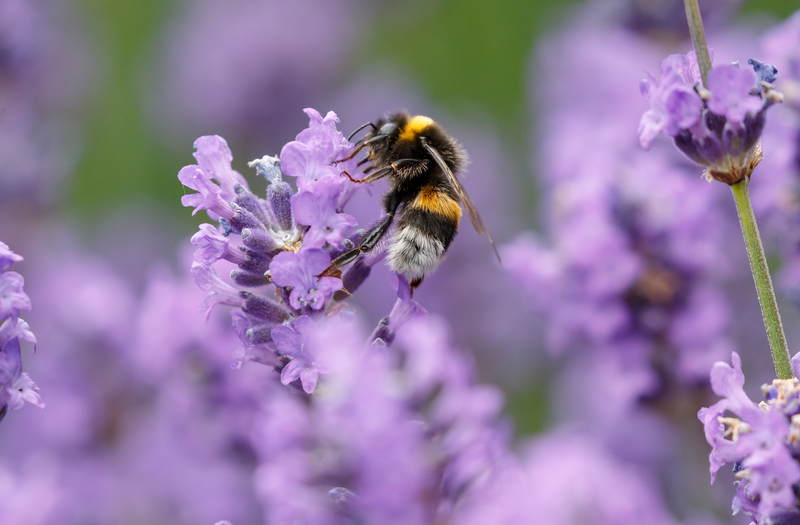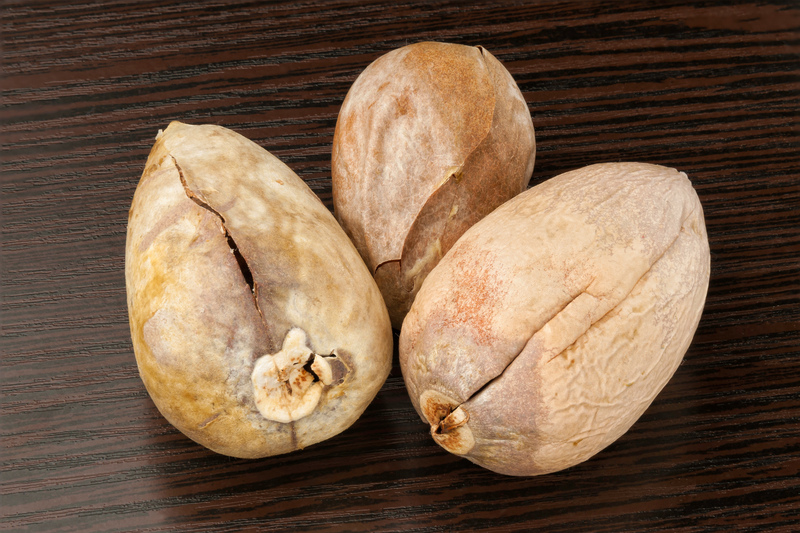Nature Enthusiasts' Guide to Essential Gardening Tools
Posted on 26/08/2025
Nature Enthusiasts' Guide to Essential Gardening Tools
Are you passionate about nurturing plants, cultivating a lush garden, or simply connecting with nature? Gardening is not only a rewarding hobby but also a way to contribute positively to the environment. Whether you're a seasoned green thumb or just delving into the wonders of horticulture, having the right set of gardening tools can make a world of difference. This comprehensive guide for nature enthusiasts will walk you through the essential gardening tools you need, why they're important, and tips on their effective usage.
Why Choosing the Right Gardening Tools Matters
Serious and recreational gardeners alike understand the importance of efficient, high-quality tools. The correct tools not only simplify garden maintenance but also enhance plant health, garden productivity, and personal satisfaction. The right gardening equipment reduces effort, prevents injury, and ensures you get the most out of your time outdoors.
- Improved Efficiency: Save time and energy on every gardening task.
- Less Strain: Ergonomic tools protect you from repetitive strain and fatigue.
- Healthy Plants: Precise, clean cuts prevent disease and damage.
- Cost-Effectiveness: Quality tools last for years, saving on replacements.

Essential Gardening Tools Every Nature Enthusiast Needs
Let's delve into the basic yet indispensable tools that form the foundation of any gardener's toolkit. This list is suitable for garden novices and seasoned horticulturists alike.
1. Hand Trowel
The hand trowel is a must-have for gardeners of all levels. Ideal for digging small holes, transplanting seedlings, and scooping soil or compost, a sturdy stainless steel trowel stands up to the rigors of frequent use. Look for an ergonomic handle to reduce hand fatigue, especially during long planting sessions.
2. Pruning Shears (Secateurs)
Well-sharpened pruning shears are essential for maintaining healthy plants. Use them to trim dead or overgrown stems, harvest vegetables and flowers, or shape shrubs. When choosing a pair, prioritize cushioned grips, a safety lock, and a blade that stays sharp overtime. Bypass pruners are best for live branches, while anvil pruners are better suited for dry or dead wood.
3. Garden Gloves
Protect your hands from thorns, splinters, and allergens with quality garden gloves. Select gloves with reinforced fingertips and breathable material for comfort. For precision tasks such as seed sowing or pruning, opt for gloves with better dexterity.
4. Spade
The classic spade is the workhorse of the garden. With its sturdy, flat blade, it is perfect for digging, edging, or lifting sod. A strong, sharp, and rust-resistant spade minimizes effort and maximizes results. Look for a D-shaped handle for superior grip and control.
5. Garden Fork
Essential for working compacted or heavy soil, the garden fork excels in digging out root vegetables, turning compost, and aerating soil. Forged carbon steel tines are the most durable and ideal for frequent, heavy-duty use.
6. Watering Can
Give your plants the hydration they need with a watering can tailored to your garden's scale. For container gardening or small beds, a lightweight can with a fine rose is perfect; for larger gardens, a bigger capacity can reduce trips to the tap. Some gardening enthusiasts favor cans with detachable spouts for versatility.
7. Garden Hoe
The garden hoe is indispensable for weeding, cultivating, and breaking up soil. Whether it's a traditional draw hoe, stirrup hoe, or a scuffle hoe, select one appropriate for your soil type and typical tasks. A comfortable, long handle improves leverage and reduces back strain.
8. Wheelbarrow
Moving soil, mulch, tools, or even harvest requires a reliable wheelbarrow. Modern wheelbarrows come in steel, plastic, and even foldable varieties to suit different garden sizes and storage needs. Pneumatic wheels offer easier navigation over rough terrain.
9. Rake
A garden rake smooths out soil, collects debris, and helps level compost or mulch. A sturdy, metal-headed rake is best for breaking up clumps and preparing beds, while leaf rakes with flexible tines make quick work of fallen leaves.
10. Loppers
For branches too thick for pruners, loppers provide the extra leverage and strength needed. Choose adjustable, ergonomic models for easy cutting and comfortable use in dense shrubbery or hard-to-reach spots.
Optional but Beneficial Garden Tools for Enthusiasts
Besides the must-haves, there are additional gardening implements that can elevate your experience and efficiency. Consider adding these to your arsenal as your garden grows:
- Garden Kneeler or Pad: Protects your knees and back when planting or weeding low beds.
- Soil Test Kit: Provides key insights into pH and nutrient levels for targeted fertilization.
- Hand Weeder: Makes weeding precise and effortless without disturbing nearby roots.
- Plant Labels and Permanent Markers: Essential for tracking plant varieties, sowing dates, and crop rotations.
- Garden Scissors: For delicate trimming, deadheading, and floral arrangements.
- Compost Bin or Tumbler: Turns garden waste into nutrient-rich compost for soil enrichment.
- Rain Gauge: Tracks water needs and allows for mindful irrigation.
What to Look for in Quality Gardening Tools
Investing in high-quality tools pays off with greater durability, comfort, and performance. Here are key criteria for selecting reliable garden equipment:
- Material Quality: Stainless steel or carbon steel blades resist rust and retain their sharpness.
- Comfortable Handles: Ergonomic grips prevent blisters and reduce strain on wrists and hands.
- Weight and Balance: Tools should feel balanced and not be too heavy for easy handling.
- Easy Maintenance: Choose tools that are easy to clean and store.
- Warranty: Many reputable brands offer warranties, signifying faith in their products.
Tool Maintenance: Keeping Your Gardening Tools in Top Shape
Proper maintenance extends the life of your beloved gardening gear and ensures safety and precision. Simple routines make all the difference:
- Cleaning: Rinse dirt and debris after each use to prevent rust and bacterial spread.
- Sharpening: Regularly sharpen blades (pruners, loppers, hoes) for cleaner cuts and easier work.
- Oiling: Lightly oil metal surfaces to resist corrosion, especially before storage.
- Proper Storage: Store in a dry, sheltered spot; hang tools or keep in a toolbox to protect edges.
- Regular Inspection: Check for loose screws, cracked handles, or rust; repair or replace as needed.
Eco-Friendly Gardening Tools for Nature Lovers
If you're a green-minded gardener, eco-friendly gardening tools are a fantastic way to care for both your plants and the planet. Consider these options:
- Sustainably Sourced Handles: Opt for tools with FSC-certified wooden handles.
- Recycled Materials: Some brands offer products made from recycled plastics or metals.
- Organic Lubricants: Use plant-based oils for tool maintenance instead of petroleum products.
- Solar-Powered Watering Systems: Minimize energy usage for irrigation.
Must-Have Tools for Different Types of Gardens
Vegetable Gardens
- Seeding Trays: For starting vegetables indoors.
- Row Markers: Keep your plantings straight and organized.
- Hand Weeder: Smaller, densely planted beds require precision.
Flower Gardens
- Deadheading Scissors: Promote continued blooming.
- Bulb Planters: Ensure even planting depth for bulbs.
Herb Gardens
- Compact Trowel: Ideal for tight spaces.
- Herb Scissors: Harvest tender leaves without bruising.
Container Gardens
- Small Watering Can: Easy to maneuver for patio or balcony plantings.
- Hand Fork: Loosens soil without damaging roots.
Expert Tips for the Nature Enthusiast Gardener
- Prioritize Multi-Use Tools: Tools like trowels, forks, and hoes with interchangeable heads can save space and investment.
- Start Small, Grow with Your Garden: Begin with essentials and expand your toolkit as your needs evolve.
- Always Sanitize Cutting Tools: Prevent the spread of plant diseases with routine disinfection.
- Choose Tools Suited to Your Body: The right handle length and tool weight reduce strain and enhance gardening enjoyment.
- Embrace Technology: Smart moisture meters or digital plant care apps complement traditional hand tools.

Recommended Brands for High-Quality Gardening Tools
Not all gardening tools are created equal. For those new to gardening or looking to upgrade their collection, consider these respected brands renowned for quality and reliability:
- Felco: World-renowned for precision pruners and loppers.
- Fiskars: Trusted for durable, ergonomic gardening implements.
- Burgon & Ball: British heritage tools with excellent craftsmanship.
- DeWit: Dutch-made, robust hand tools favored by professionals.
- Corona: Known for heavy-duty, long-lasting garden equipment.
*Always research the right model for your needs, seek reviews, and try out tools in-store whenever possible.
Conclusion: Embark on Your Gardening Journey with Confidence
The true spirit of nature enthusiasts lies in their appreciation for plants, patience for growth, and commitment to environmental stewardship. Equipping yourself with the essential gardening tools will empower you to cultivate a thriving, beautiful garden -- whether it's a vibrant meadow, productive vegetable patch, or calming balcony refuge.
Remember, the best garden tools are not necessarily the most expensive, but those that fit your gardening style, are well-made, and inspire you to spend more time immersed in nature. Invest wisely, care for your tools, and watch as your garden flourishes under your guided hand.
Ready to transform your outdoor space? Start assembling your toolkit today and nurture your passion for the natural world!
Frequently Asked Questions: Your Gardening Tool Guide
- What are the top three must-have tools for beginner gardeners?
A trowel, pruning shears, and garden gloves are the best starting point for beginners. - How often should I clean my gardening tools?
Clean your tools after each use and perform deeper maintenance (sharpening, oiling) seasonally. - Are expensive tools worth the investment?
Quality matters more than price; well-made tools often cost more but last longer and are more pleasant to use. - Where can I buy essential gardening tools?
Reputable garden centers, home improvement stores, or online retailers like Amazon and specialist websites have extensive selections.

